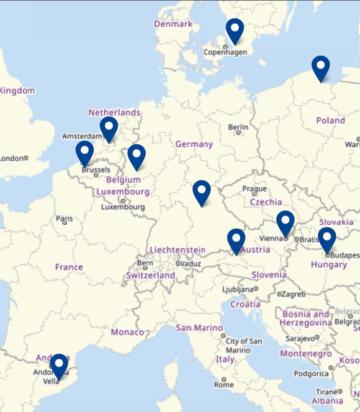Help us make the FRA website better for you!
Take part in a one-to-one session and help us improve the FRA website. It will take about 30 minutes of your time.

EU Charter of Fundamental Rights
Articolul 54 - Interzicerea abuzului de drept
Nici una dintre dispozițiile prezentei carte nu trebuie să fie interpretată ca implicând vreun drept de a desfășura orice activitate sau de a îndeplini orice act îndreptat împotriva oricăruia dintre drepturile și libertățile recunoscute prin prezenta cartă sau de a le impune restrângeri mai ample decât cele prevăzute prin prezenta cartă..



